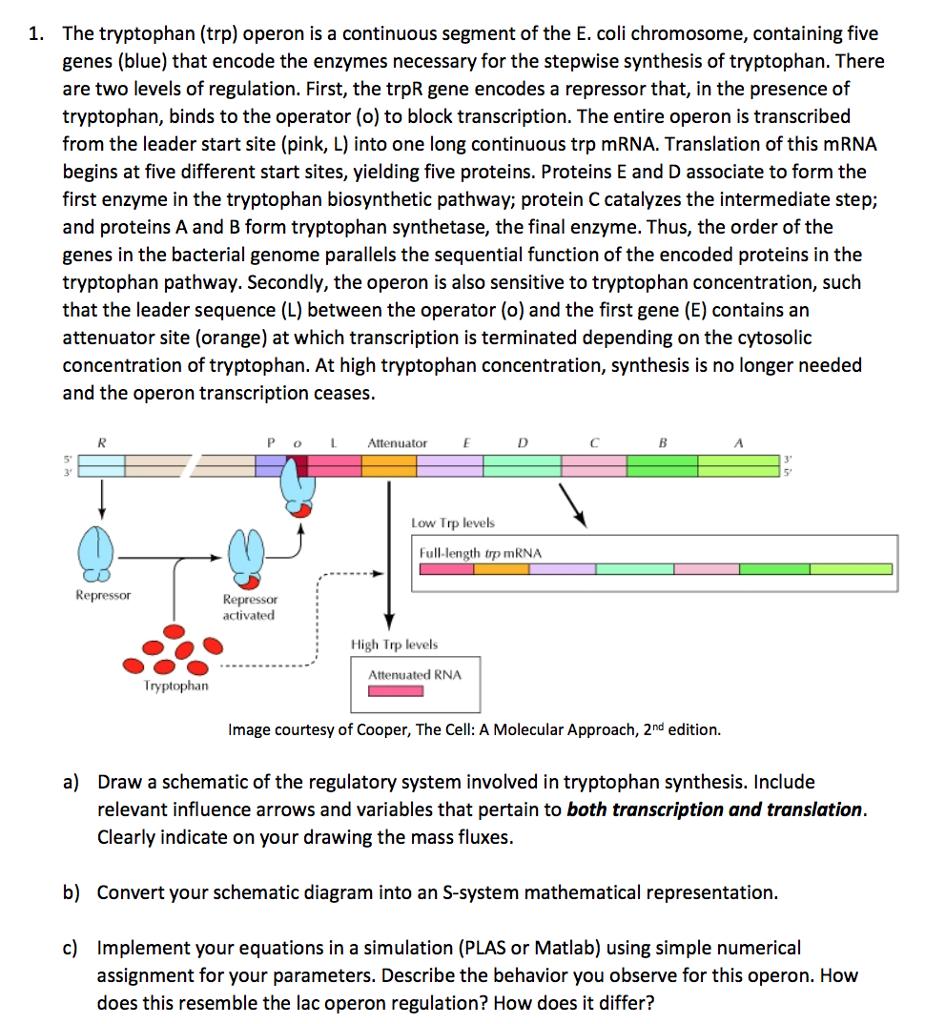Answered step by step
Verified Expert Solution
Question
1 Approved Answer
1. The tryptophan (trp) operon is a continuous segment of the E. coli chromosome, containing five genes (blue) that encode the enzymes necessary for

1. The tryptophan (trp) operon is a continuous segment of the E. coli chromosome, containing five genes (blue) that encode the enzymes necessary for the stepwise synthesis of tryptophan. There are two levels of regulation. First, the trpR gene encodes a repressor that, in the presence of tryptophan, binds to the operator (o) to block transcription. The entire operon is transcribed from the leader start site (pink, L) into one long continuous trp mRNA. Translation of this mRNA begins at five different start sites, yielding five proteins. Proteins E and D associate to form the first enzyme in the tryptophan biosynthetic pathway; protein C catalyzes the intermediate step; and proteins A and B form tryptophan synthetase, the final enzyme. Thus, the order of the genes in the bacterial genome parallels the sequential function of the encoded proteins in the tryptophan pathway. Secondly, the operon is also sensitive to tryptophan concentration, such that the leader sequence (L) between the operator (o) and the first gene (E) contains an attenuator site (orange) at which transcription is terminated depending on the cytosolic concentration of tryptophan. At high tryptophan concentration, synthesis is no longer needed and the operon transcription ceases. R Po L Attenuator E D C B A Low Trp levels Full-length trp mRNA Repressor Repressor activated High Trp levels Attenuated RNA Tryptophan Image courtesy of Cooper, The Cell: A Molecular Approach, 2nd edition. a) Draw a schematic of the regulatory system involved in tryptophan synthesis. Include relevant influence arrows and variables that pertain to both transcription and translation. Clearly indicate on your drawing the mass fluxes. b) Convert your schematic diagram into an S-system mathematical representation. c) Implement your equations in a simulation (PLAS or Matlab) using simple numerical assignment for your parameters. Describe the behavior you observe for this operon. How does this resemble the lac operon regulation? How does it differ?
Step by Step Solution
There are 3 Steps involved in it
Step: 1

Get Instant Access to Expert-Tailored Solutions
See step-by-step solutions with expert insights and AI powered tools for academic success
Step: 2

Step: 3

Ace Your Homework with AI
Get the answers you need in no time with our AI-driven, step-by-step assistance
Get Started


